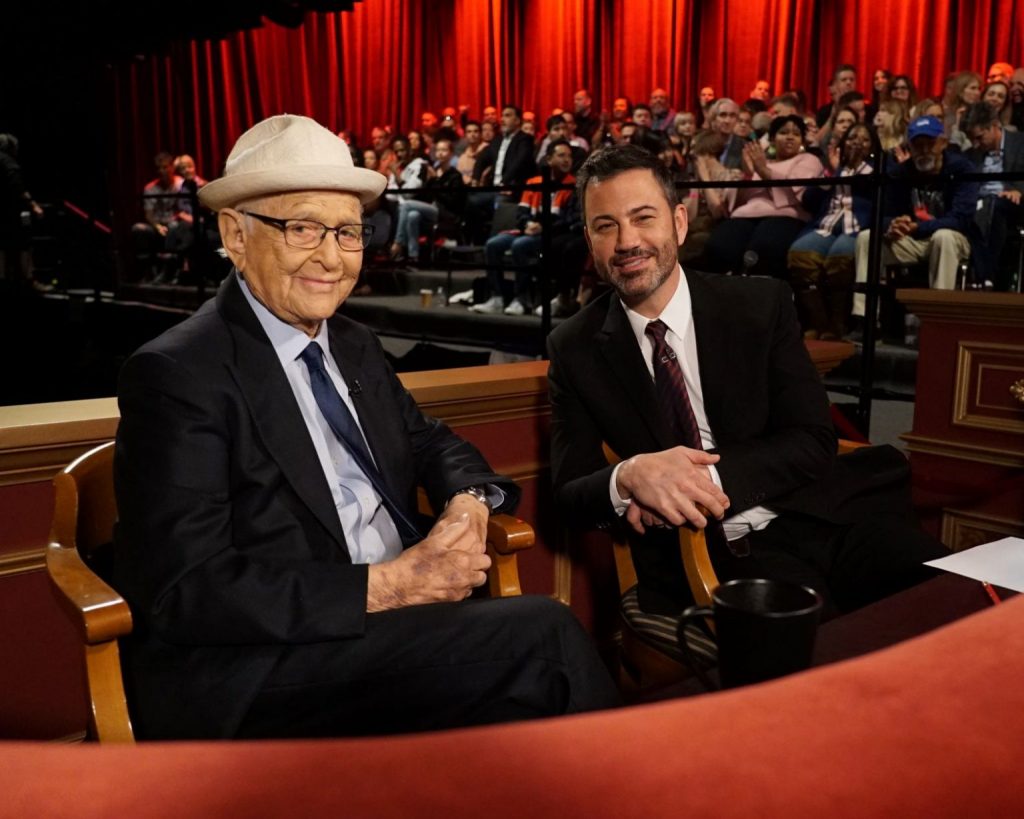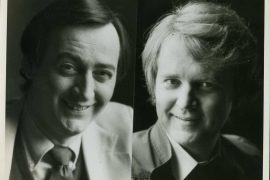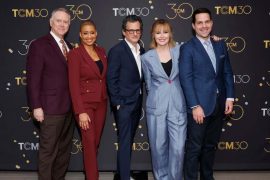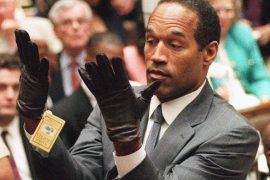
Some of the people who make the TV we love pass away so soon we can’t believe it. Then there are those legends who live so long, we’re surprised that they pass away at all.
Norman Lear died Tuesday, Dec. 5 in Los Angeles at 101. His face, under that trademark floppy off-white hat, would certainly qualify for the rock of Gibraltar of TV comedy,
As I told 16 different CBC syndicated radio hosts across Canada Wednesday, before Lear’s landmark CBS series, All in the Family, sitcoms were escapist nonsense aimed at 10-year-olds throughout much of the ’60s. TV households were all about witches and genies, Munsters and Beverly Hillbillies. The Flintstones were less cartoon-y than many live-action network comedies.
Lear and his writing and producing partner Bud Yorkin took a cheeky little idea from England, a series called Till Death Us Do Part, and turned it into All in the Family. They cast Carroll O’Connor as Archie Bunker, a bigot from Brooklyn who loved Richard Nixon and routinely dismissed ethnic minorities with the most offensive street slang.
The UK was probably ahead of America by the late ’60s in terms of making comedies for grown ups. Monty Python blazed a new trail in sketch. Back in North America, The Smothers Brothers and Rowan & Martin’s Laugh-In signalled that the TV times they were a changin’.
ABC, however, wasn’t ready when Lear and Yorkin tried to sell them on an early pilot for All in the Family. CBS finally bought it, once the younger generational characters were well-cast with Rob Reiner as Archie’s son-in-law/nemesis Michael “Meathead” (as Archie called him) Stivic and Sally Struthers as his “little gerl” Gloria. CBS snuck the series on their schedule in mid-season, to little fanfare. Then, in summer reruns, the show took off in the ratings. Winning a few early Emmys helped.
advertisement
Soon North American audience could not look away from the Bunkers. “Did you hear what Archie said last night?” became part of the conversation. It was TV’s No. 1 show from 1971 through 1976.
Back then, network television was a shared experience. As a youngster, I watched in the living room with my mom and dad, on our one and only screen, a 25-inch Clairtone. My dad would shake his head as Archie uttered every racial epitaph under the sun — and laugh for 30 minutes.
I was 12 when it premiered, and watched it with my mom and dad back when families sat in the living room and huddled around the only screen in the house. Archie Bunker’s racial epitaphs were hair-raising, and I remember my dad shaking his head in disbelief — and laughing straight through the commercials.
Part of what was so hypnotizing about the series was the live performance aspect. This was true theatre, a 24-minute play, written and performed live in front of a Television City studio audience every week. Most of the action took place on one set, the Bunker’s living room. It sounds boring, but it was electric.
Lear went on to produce many spin-offs and follow up series. It was as if a damn had broke and issue-oriented comedies for grown ups flooded into living rooms everywhere. Within months, CBS purged their schedule of all those rural comedies and began re-filling it with more shows from Lear: The Jeffersons, Maude, Mary Hartman, Mary Hartman and others. Sanford & Son and Good Times were other game changers from Lear, along with One Day at a Time, which the producer helped revive in a Latino-based setting a decade ago on Netflix.
Lear was already exploring issue-based comedy before All in the Family. He poked fun at the tobacco industry in the Dick Van Dyke 1967 feature, “Cold Turkey.” With the enormous success of the Bunkers, however, he had a blank cheque to push boundaries further and spent it wisely, becoming a crusading voice for racial equality among other causes.
I was asked on several radio interviews if All in the Family could air and be a big hit today. Shock values can still draw an audience. Viewers have been startled by things Cartman says on South Park, for example. But no single show draws 40 million viewers in a splintered streaming era when four million is a hit.

It was interesting when Jimmy Kimmel teamed up with Lear, then in his late nineties, for those Live in Front of a Studio Audience ABC specials that entertained viewers during the height of the COVID isolation period. Original scripts from the ’70s from episodes of All in the Family and The Jeffersons were used with stars from today, such as Woody Harrelson, Maria Tomei and Jamie Foxx. Fifty years later, the politically correct ceiling was much lower and the stuff George Jefferson or Archie Bunker said could get you canceled. What aired unedited in 1971 got bleeped in 2021.
Back in the ’70s, there was no time for political correctness. As the war in Vietnam raged on, true scenes of terror spilled into living rooms on nightly newscasts. America was sharply divided, especially generationally. All in the Family brought matters of race, sexuality, antisemitism, women’s rights, and even explosive issues such as abortion, into the home. Lear went there and helped raise consciousness. It worked because he also made families laugh together.
Today, Archie Bunker might get elected president. There was a joke campaign to draft the character in ’72 and somewhere I still have one of the buttons. The divisions in North America are so great now that educating the masses might actually backfire.

Carol O’Connor was such a wonderful actor he, and the writers, somehow made this blue collar bigot sympathetic. Jean Stapleton, as Archie’s “dingbat” wife Edith, gave the show heart. The lessons Lear brought to the table could not be stifled in the ’70s. Today, I’m not so sure.
I did get to meet Mr. Lear eleven years ago in 2012. He and Reiner attended a Television Critics Association award presentation and accepted our Heritage salute. Lear was fit and sharp at 90 but still I felt I better hurry over and speak to him, not knowing then that I could have waited another ten years.
Before the ceremony, I walked up and thanked him for making me and my family laugh all those years earlier. “I grew up watching your shows,” I said.
Replied Lear, “So did I.”

At the event, Lear and Reiner took the podium and did a bit, reading an actual transcript from the then recently released White House recordings of Richard Nixon, with Reiner as the president and Lear doing White House stooges Haldeman and Ehrlichman. The actual exchange was about Nixon’s dislike of an All in the Family episode which made Nixon uneasy by showcasing, in his words, “homos.” Lear sprung the idea on Reiner on their way to the hotel.
And that is what is important to remember about Lear and his legacy. Yes, he raised consciousness along with the level of discourse. But he also made you laugh. It is why today, 50 years later, when 20 seconds of All in the Family or Maude or Sanford and Son pop up via TikTok or Instagram or wherever, they still make you look and still make you laugh.
“Mister,” to paraphrase Archie, “we could use a man like Norman Lear once again.”







1 Comment
Excellent article. I had the same experience. My Dad laughed at Archie but also shared some of his outdated bigotry. It runs deep. I remember my Dad nearly falling out of his chair when Sammy Davis Junior kissed Archie. I thought it was funny, but not as much as my Dad did… because I didn’t realize what a big deal that was. I also fondly recall the Roshomon inspired episode that told the story of a black guy coming to repair something at their house and the different takes Archie, Michael and Edith had on the story.
All the best, Bill